Artificial Intelligence
Modern artificial intelligence (AI) technologies learn patterns in a large collection of data to simulate human-like decision-making processes (i.e., discriminative AI) and to generate realistic text, images, and data (i.e., generative AI). In the context of education, when used appropriately, these AI technologies can greatly improve teaching, learning, assessment, and learner well-being.
As a pioneer in the adoption of advanced technologies in education, HKUMed will continue to develop both the hardware and software for AI applications and adopt innovative pedagogical approaches that harness the power of AI technologies to meet the educational needs of future medical and healthcare professionals. SIME will continue to support these EdTech initiatives, with the latest one spearheading the development and appropriation of generative AI (GenAI) for medical and healthcare education. Our in-house resources supporting the effective application of GenAI in teaching and learning are under development.
For more information, please visit our Generative AI Resource Hub.
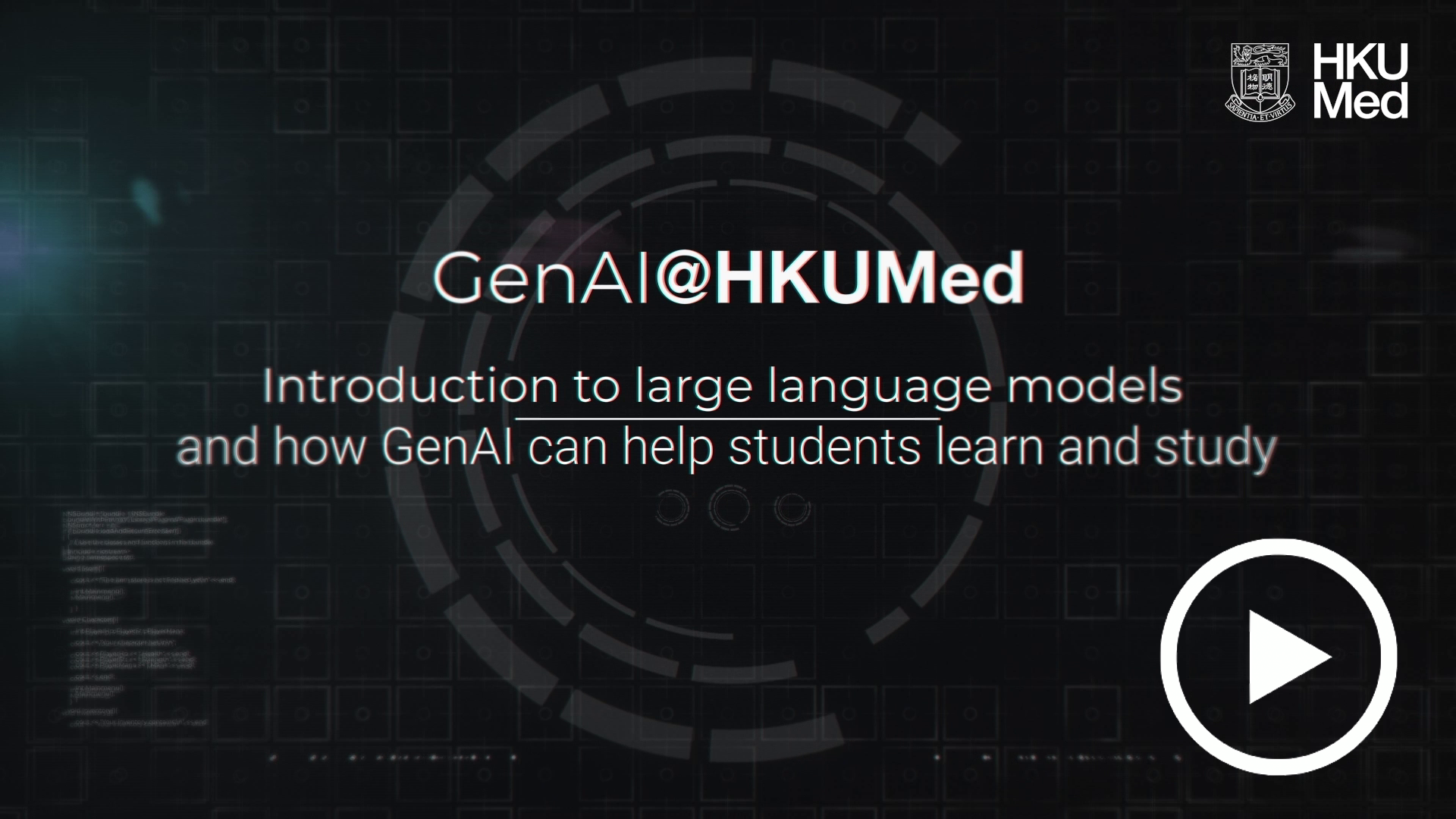 |
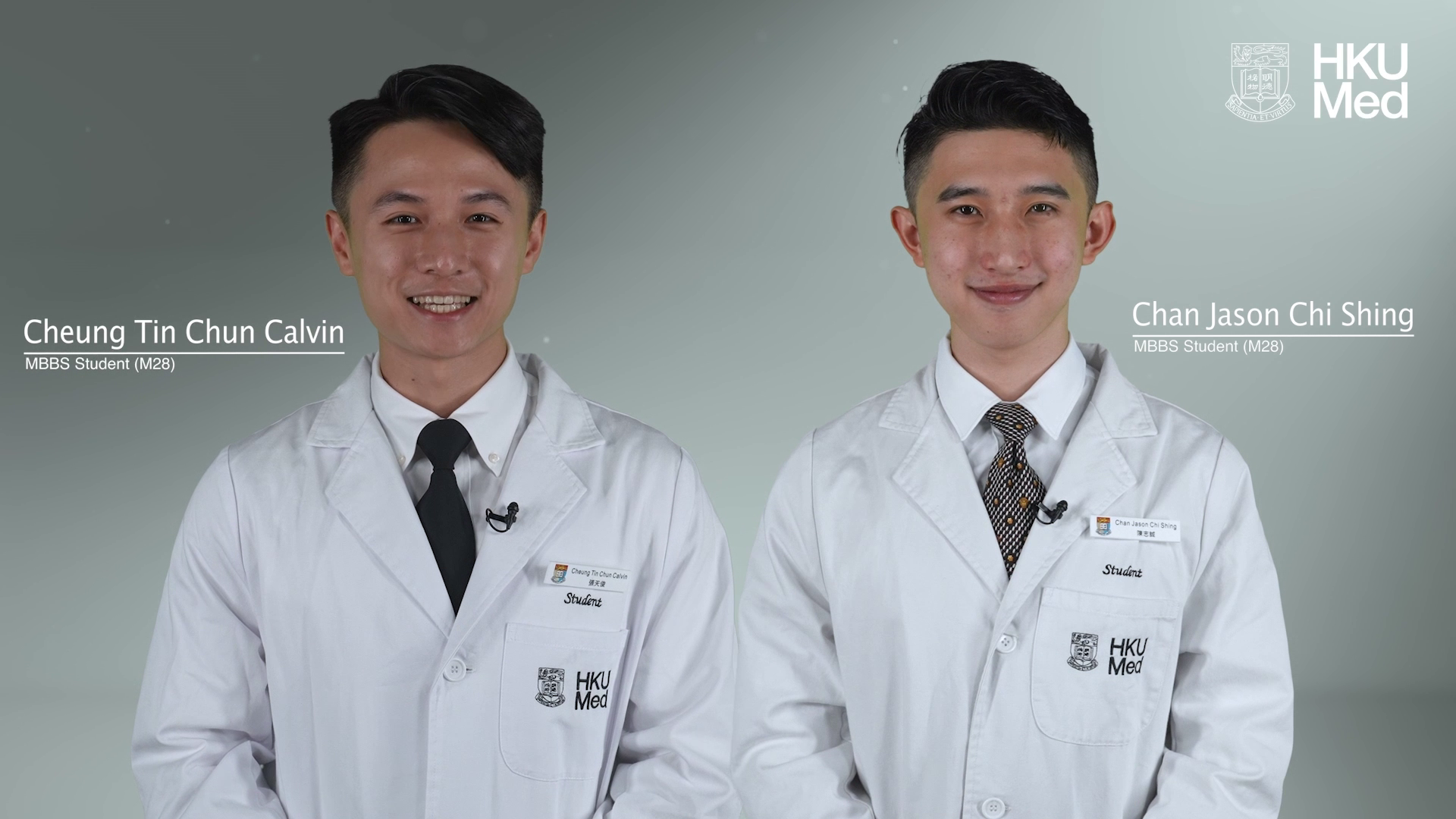 |
Augmented Reality / Virtual Reality
Educational technologies have created many new possibilities in the way we make learning happen in students. Since the advent of virtual reality (VR) technology, it has been gradually adapted into medical education as an innovative educational intervention at HKUMed. In the past several years, we have developed and improved the pedagogy of Virtual-Reality-Enabled Tasks (VRETs) and successfully implemented VR technology in the gross anatomy dissection lab and molecular biology in the undergraduate curricula. The VR dissection course has been fully integrated, as a crucial addition to our cadaver-based gross anatomy education, into our first and second year of MBBS undergraduate curricula for all body system blocks. The VR technology has also been adapted in the Bachelor of Biomedical Sciences, Bachelor of Nursing, Bachelor of Dental Surgery, and Bachelor of Sciences (Major in Biochemistry) programmes.
HKUMed is one of the first medical schools in the world to systematically deploy VR technology on a large scale to the undergraduate medical curriculum. The newly established technology-enhanced active learning space, the TechMezz at Yu Chun Keung Medical Library, provides the students with access to the latest VR and digital anatomy tools to advance their understanding of anatomy and preclinical sciences outside the dissection lab and classrooms. Our endeavours in developing and adapting advanced technologies, including VR, have been well received by the international medical education community, with our achievements being disseminated in international conferences, journal articles, and book chapters.
Ultrasound Teaching for the Clinical Years of the Undergraduate Medical Curriculum
The teaching of ultrasonography principles and practice was introduced to the MBBS curriculum more than a decade ago in anticipation of its common utility in clinical practice in the near future. The point-of-care ultrasound device, known to many as "tomorrow’s stethoscope", is now increasingly being used by clinicians at the bedside to aid diagnosis and the performance of minor invasive procedures.
Commensurate with such developments in the field, our ultrasonography curriculum has also evolved into a longitudinal one, with elements of teaching spanning all years of the programme. With a generous donation from the Tam Shiu Charitable Trust, HKUMed has acquired over 500 portable ultrasound units so as to be able to loan to each senior student an ultrasound device through selected clinical rotations. Teachers from various specialties, including surgery, critical care, emergency and internal medicine, orthopaedics as well as obstetrics and gynaecology are able to teach the students the common uses of ultrasound within their specialties. Already armed with necessary understanding of the related theories and knobology, the students are then able to conveniently practise using their own devices whenever they come across opportunities during their clinical attachments.
Telehealth
Telehealth, which involves the use of telecommunications technologies in medical practices, such as tele-consultation for outpatients and tele-pharmacy, is widely practiced in MBBS clinical teaching.
Multimedia Technology
The Multimedia Learning Resource Centre produces high quality e-learning and multimedia teaching and learning materials and provides tailored-made e-learning support services for all programmes at HKUMed.

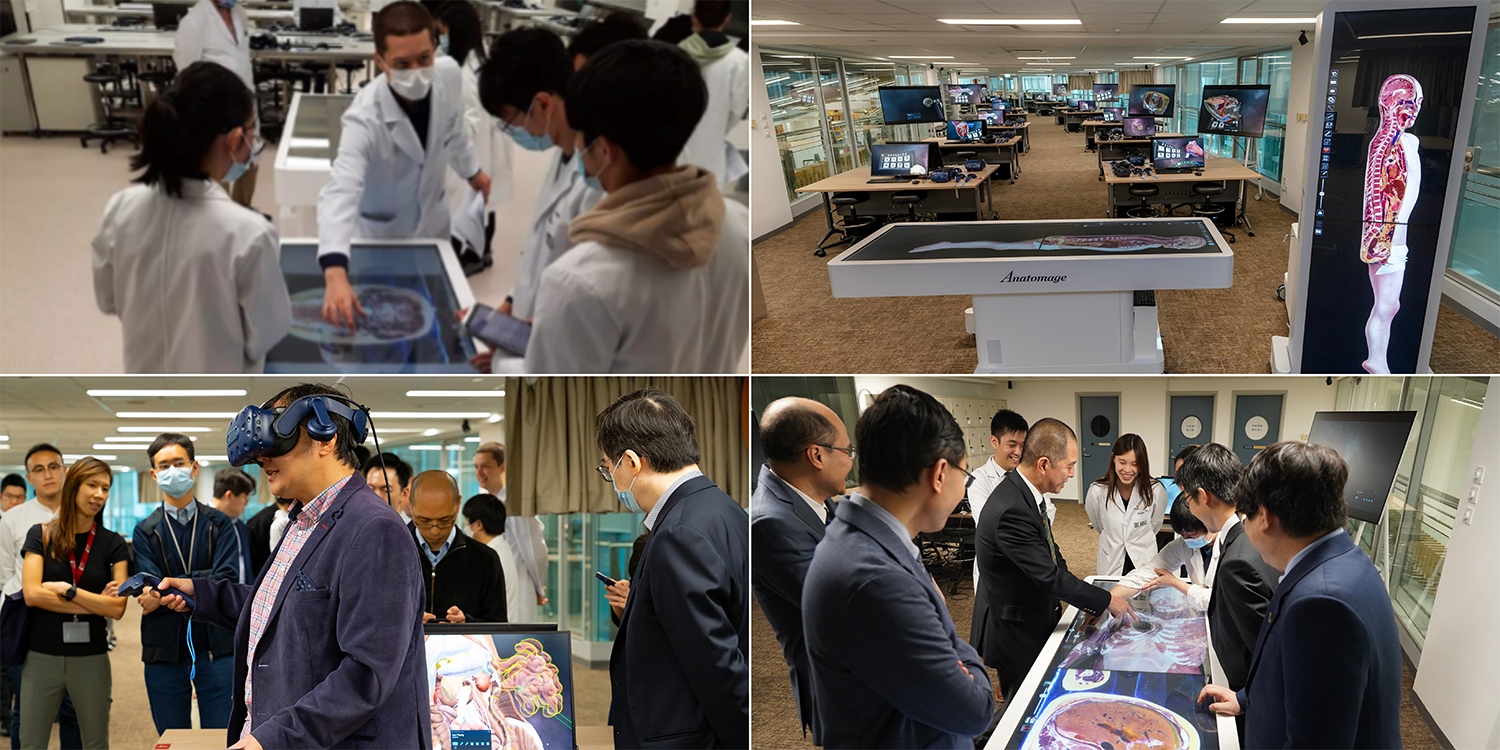
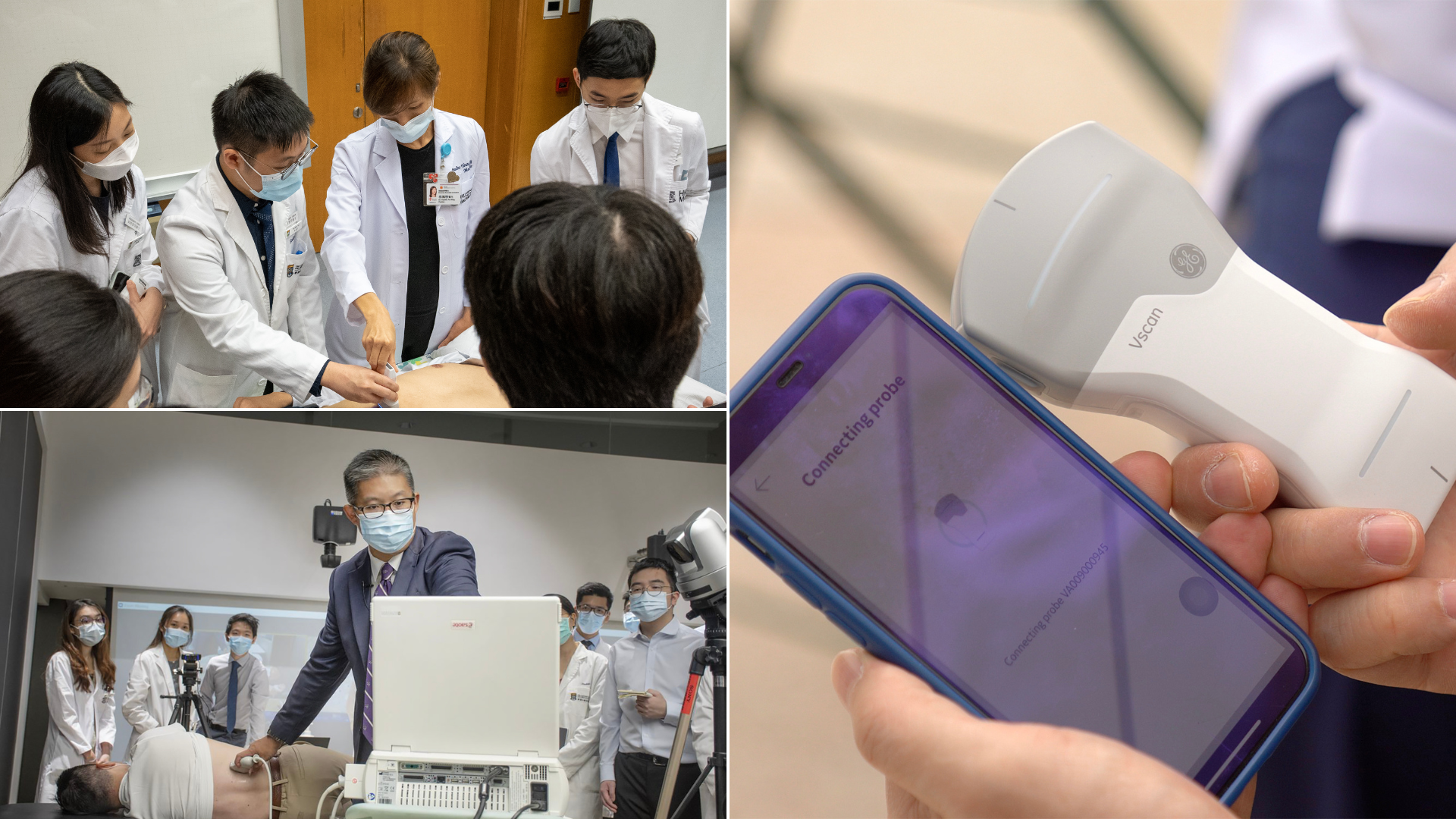
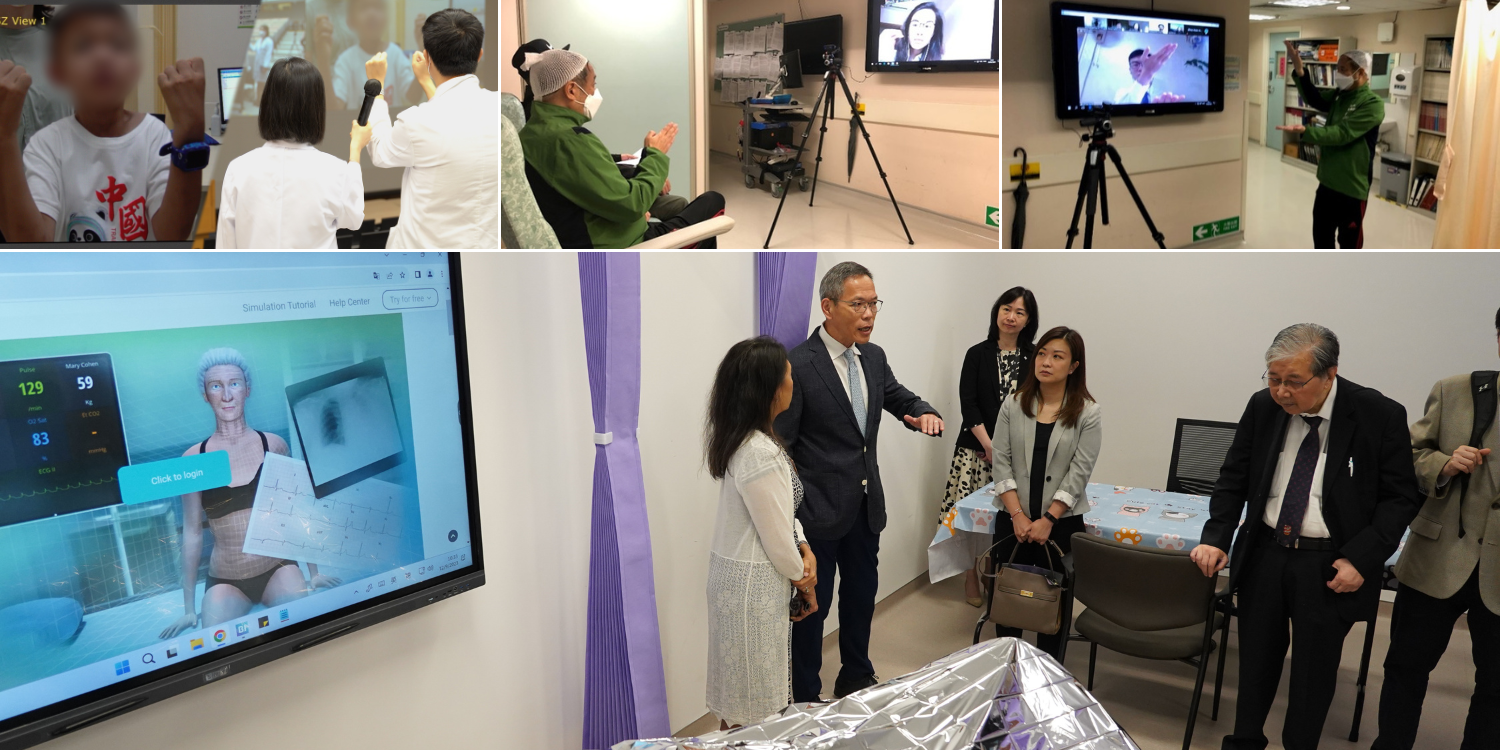
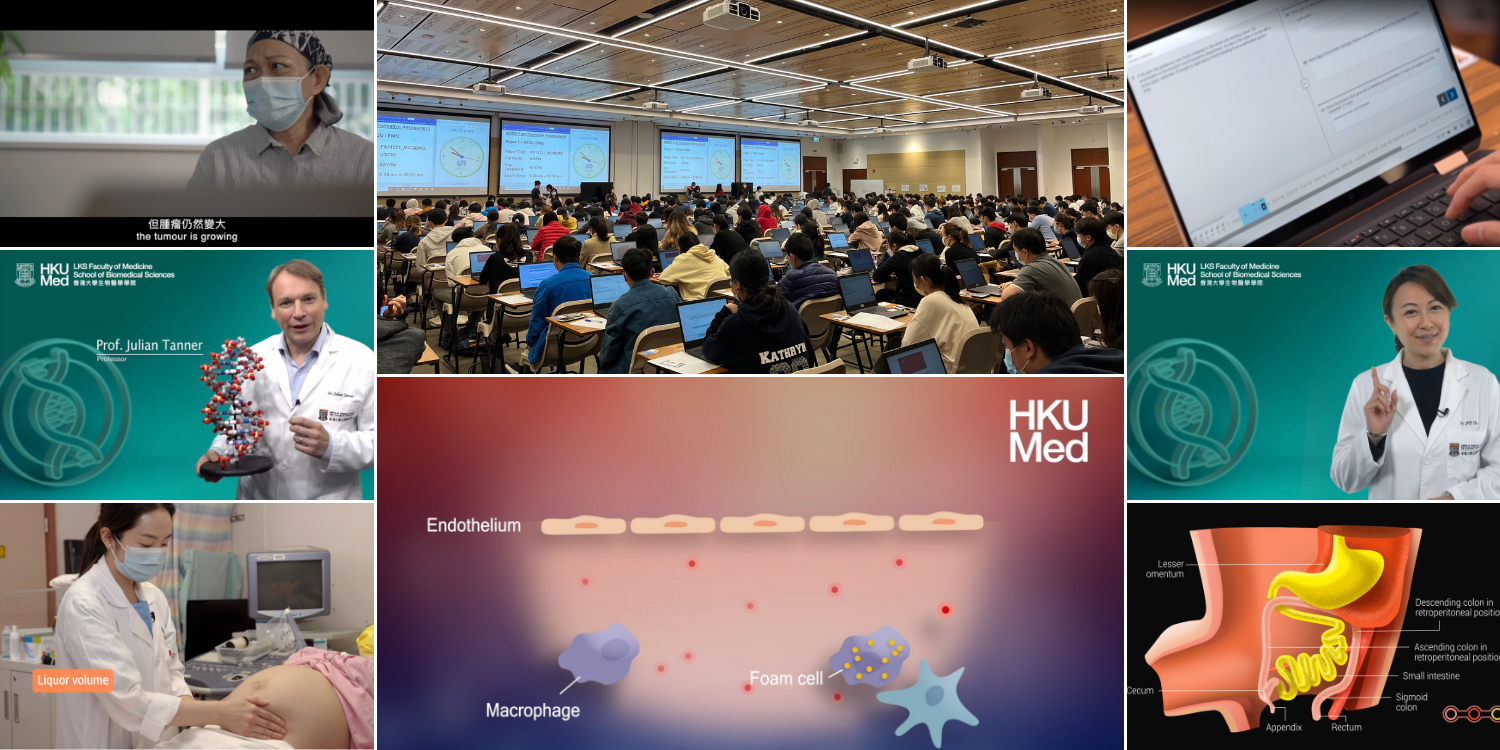
Follow HKUMed